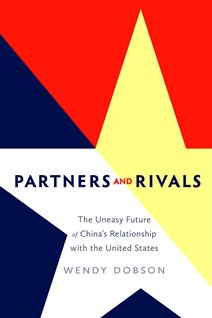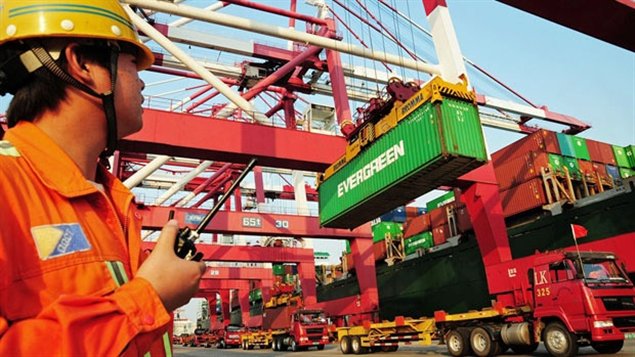For about a century, the United States has been a world superpower. Since the collapse of the Soviet Union, it has been the world’s sole superpower. However, that position is being challenged if not militarily, certainly in economic terms by China.
A new book, “Partners and Rivals”, says that as China rises to equal the US economically they have become rivals, but neither is able to dominate and so must learn to maintain what is a partnership, even if an uneasy one at times.
Author Wendy Dobson is Co-Director of the Institute for International Business at the University of Toronto’s Rotman School of Economics where she is also Adjunct Professor of Business Economics
Listen
Award-winning economist Wendy Dobson looks at how China views itself and the world, as it grows in economic and geo-political influence.
She calls the Chinese strategy to grow and maintain its economy, the Long Game.
In the past couple of decades, with its low wages, China has rapidly moved up the ladder with its policies to attract international investment, build production capacity and skills, and create massive exports, much of that to the US.
With massive income, they were looking for safe investment and so began underwriting US deficits.
As such the two countries economic fate is intertwined.
As part of this “long game”, China is now is moving into a new phase in that they must shift as well to greater domestic consumption to maintain and increase what has become a very healthy economy.
Meanwhile, in both the US and China, she notes that even as China’s power rises, and the US recovers economically, both countries have serious internal issues that preoccupy both, although the issues are very different in nature.

With the two powers vying for the same space economically and geo-politically, Dobson suggests that for the foreseeable future neither is, or is likely to be, in a position to occupy the sole spot.
Although there are elements within China that would like to see a such a challenge, and other forces at play such as political tensions between China and America’s ally Japan, she says current Chinese leaders seem to be wise enough to keep such elements under control.
Other countries and regions are also working to adapt to the shifting economic landscape, from India, to Europe, to Canada with various trade deals in the works.
Professor Dobson notes that although the next couple of decades will undoubtedly see occasional tumult and jostling as economic muscles, and perhaps military strength are flexed, such economic cooperation between the world’s two major economies is needed to avoid conflict.







For reasons beyond our control, and for an undetermined period of time, our comment section is now closed. However, our social networks remain open to your contributions.